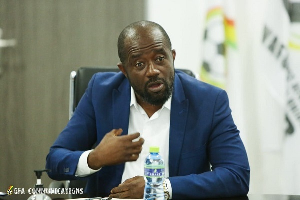School for Life (SfL), a non-governmental organization (NGO), has organized a district level stakeholder engagement workshop to solicit commitments and strengthen collaborations for a successful implementation of Parental Learning for Uninterrupted Schooling (PLUS) project.
It was also meant to validate a need assessment survey which was conducted by the SfL in the Northern Region as part of efforts to fine-tune the project’s strategies.
The two-day workshop, held in Nanton and Kumbungu in the Northern Region respectively, brought together the Nanton and Kumbungu District Directors of Education and other officials from the Ghana Education Service, School Management Committees (SMCs), teachers, District Coordinating Directors and other representatives from the two District Assemblies, some parents, community opinion leaders and other relevant stakeholders.
The PLUS project is a three-year initiative that seeks to build the capacities of parents in marginalized communities by equipping them with the necessary skills in their children’s schooling and learning activities, to help improve on their academic performance.
The project, being implemented in 40 communities in the Nanton and Kumbungu districts, and funded by the Commonwealth of Learning (COL), is expected to benefit about 3,600 parents and 7,316 learners in the beneficiary communities.
A SfL’s need assessment survey report in the Northern Region on the PLUS project, which was presented during the workshop found that “The lack or low level of education make some parents feel they will not be welcomed to ask questions, contribute somehow in their children’s classroom, to make suggestions or to otherwise support their children’s education”.
The stakeholders, therefore, suggested the need for teachers in various schools to collaborate and support parents with no educational background to help them monitor the progress of learning and academic performance of their children.
“Parents must regularly visit their children’s schools to ascertain first-hand information from school authorities about their children’s learning activities and how they are faring in terms of their performance so that they could help them improve”, they said.
They also encouraged parents, regardless of their academic background, to frequently ask their children about their school activities and provide them with the needed learning materials to enhance their learning outcomes and academic performance.
The stakeholders pledged their commitment to work closely together to ensure successful implementation of the PLUS project to achieve the desired outcome in its operational communities to help improve on the academic performance of children in the areas.
Madam Wedad Sayibu, Programmes Director at SfL, speaking at the workshop, said the PLUS project would be implemented in collaboration with the Ghana Education Service and other NGOs, to build parents and teachers’ capacities by creating platforms for effective parental involvement in the daily learning activities of children to enhance their learning outcomes.
She called on parents to take ownership of the PLUS project and appreciate its relevance to empower them to be actively involved in their children’s schooling and learning activities to enhance their performance, which she added, would help the children to realize their ambitions.
Mr Mohammed Amin Dawuda, the Nanton District Director of Education, commended the SfL for the intervention, and said the implementation of the project was welcoming news to the district and its timing was right.
According to him, the district was ranked among the least in the district league table of educational performance in the country, adding “Projects like this, that seek to support parents to get more involved in the learning of their children will only help to contribute to improved learning outcomes.
This is even more relevant now that home schooling becomes necessary because of COVID-19”.
Regional News of Saturday, 8 May 2021
Source: GNA

















